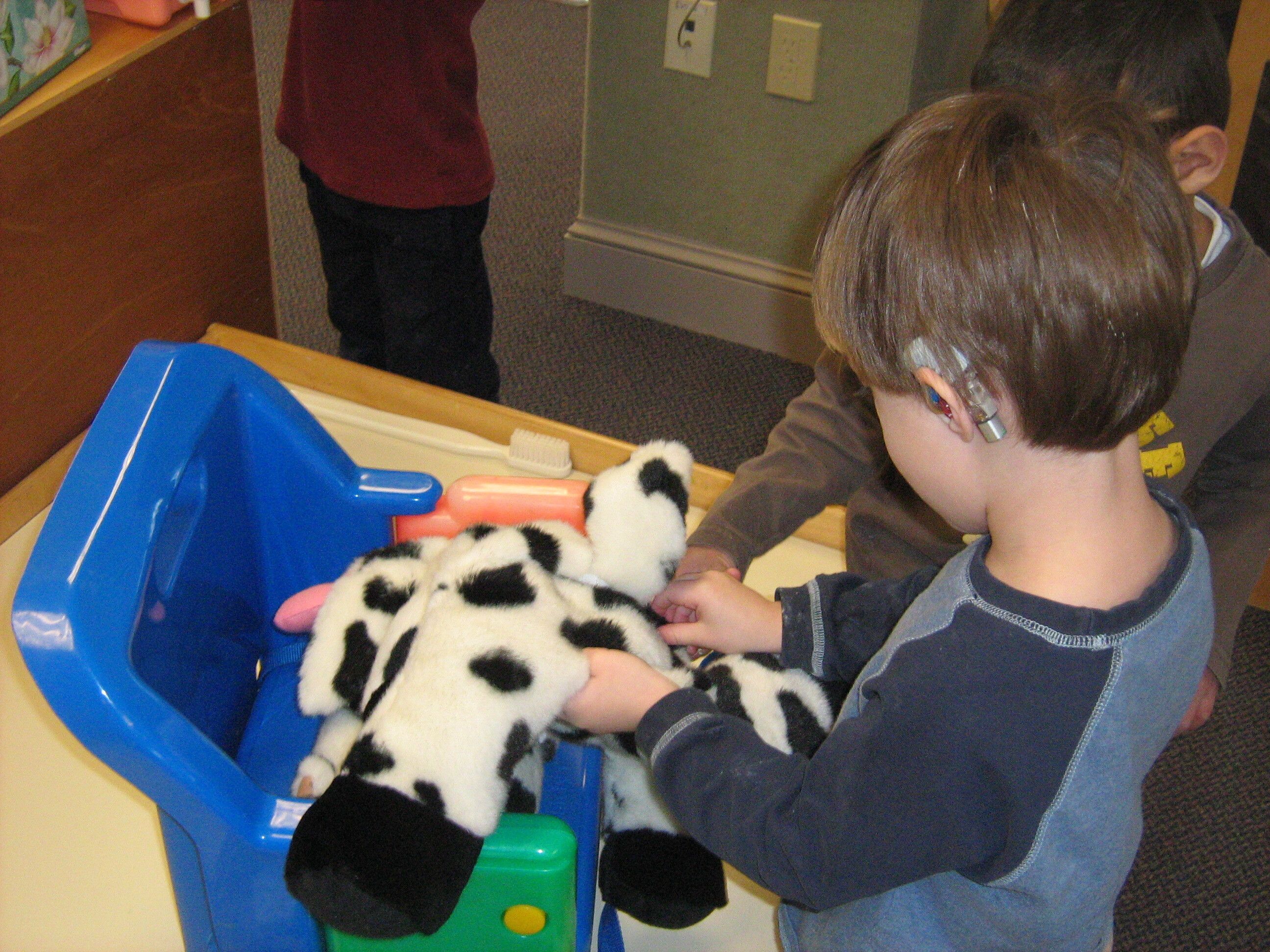Almost all babies have their hearing screened at birth, which is a refer/do not refer test. If your baby refers, they'll need more in-depth testing to confirm their hearing status. Children's diagnostic testing for hearing is known as a hearing evaluation and it will be completed by a pediatric audiologist. You'll want a thorough hearing evaluation as soon as possible so your baby won't miss the sounds and spoken language that surround them.
The sooner you know your baby’s hearing status, the better their brain can develop for listening, talking, and reading!
Learn more about what to expect at your child’s diagnostic testing, here.
Type of Hearing Loss
There are two basic types of hearing loss – conductive and sensorineural.
Conductive hearing loss is caused by problems in the outer or middle ear, such as an ear infection, wax buildup, or a problem with how the ear is formed. This may be corrected with medical treatment or surgery.
Sensorineural hearing loss means the problem is in the inner ear or cochlea – the part of the ear that receives, organizes, and transfers sound through nerves to the brain. This type of hearing loss is permanent, which means that it can't be corrected with surgery, but listening and talking are still possible with hearing devices, such as hearing aids or cochlear implants.
Range of Hearing Loss
Hearing loss level is mild, moderate, severe, or profound. With advances in hearing technology, even babies with profound hearing loss, often identified as deaf, are learning to listen and talk.
Location of Hearing Loss
Your baby may have hearing loss in only one ear (unilateral) or both ears (bilateral).
Cause of Hearing Loss
In many cases, the cause of your baby's hearing loss may be unknown. If possible, your pediatric audiologist and ear-nose-throat doctor (ENT) will help determine a cause.
Generally, there are two types of causes. Hearing loss can be caused by hereditary or genetic factors that have different likelihoods of occurrence. Hearing loss can also be caused by environmental events such as lack of oxygen at birth, infections, head trauma, or medications. Sometimes, it's both genetic and environmental factors that cause hearing loss.

